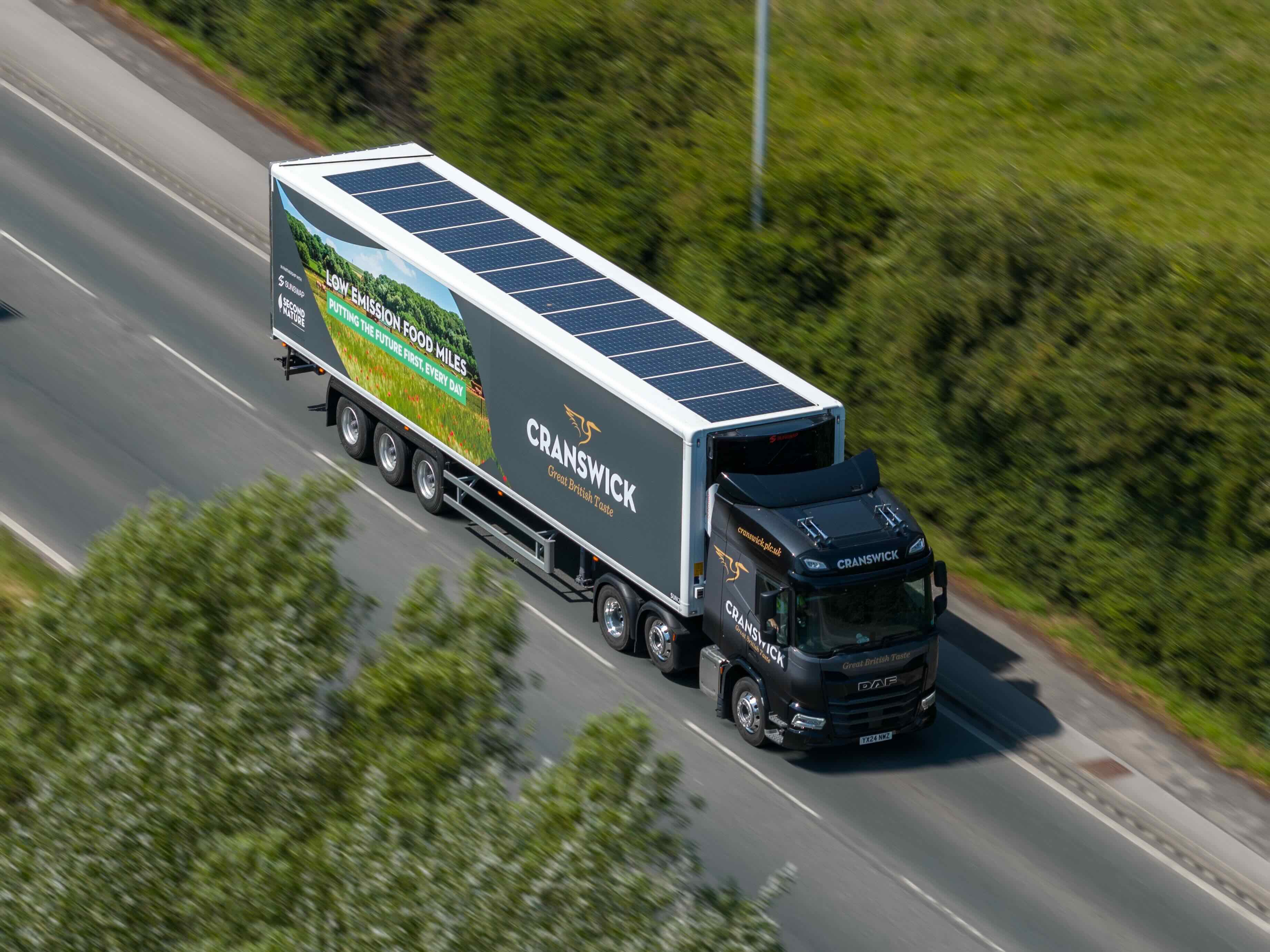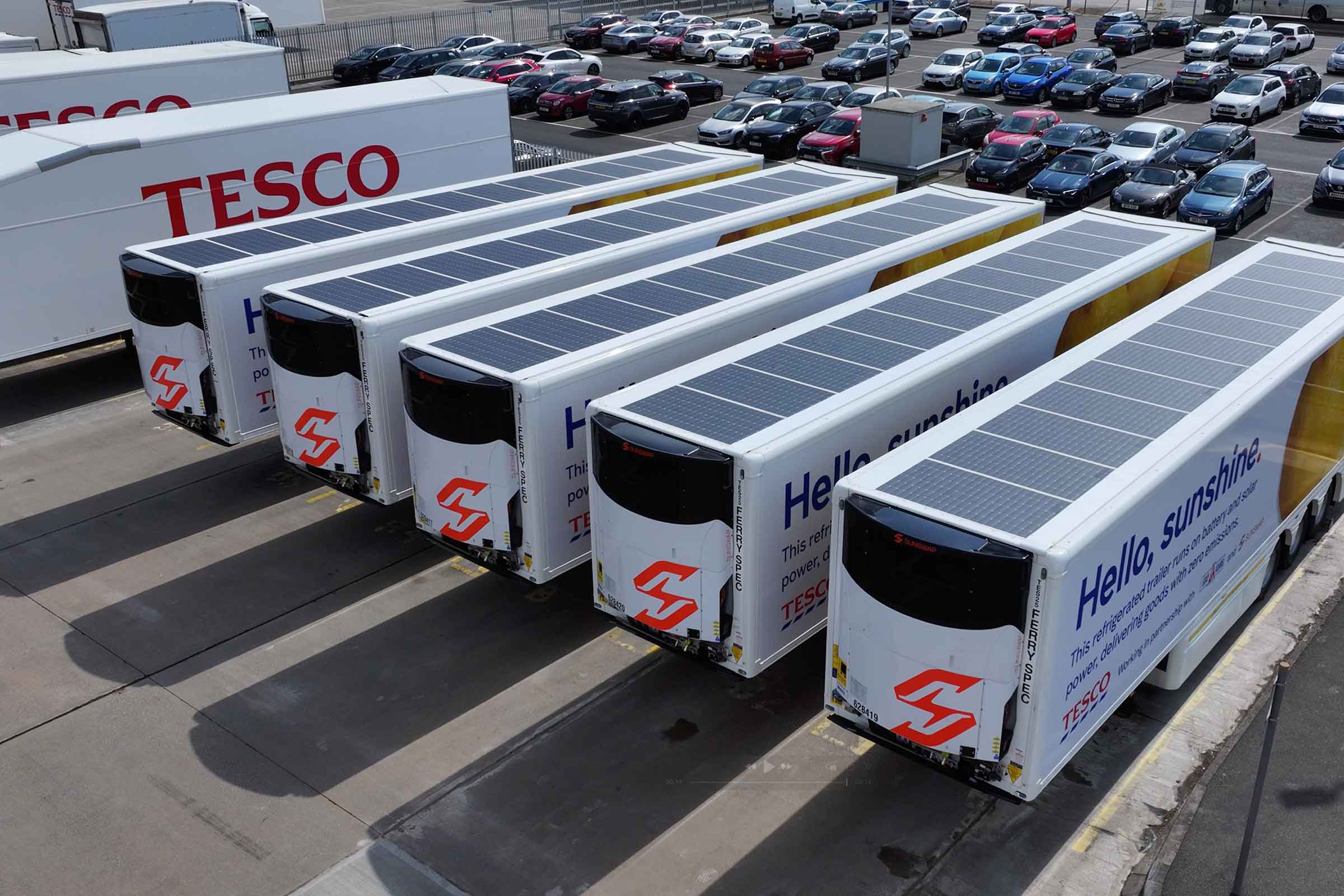Cranswick: When Britain's Food Giant Chose Zero-Emission Over HVO

Cranswick are one of Britain's largest farm-to-fork food producers, with over a billion in revenue and some seriously ambitious 2040 net zero goals.
So when they needed to accelerate their path to those goals, they didn't just test Sunswap Endurance against regular diesel. Instead, they put us head-to-head against HVO (Hydrotreated Vegetable Oil) which is already considered one of the cleanest diesel alternatives.
The results? Sunswap delivered 81% lower running costs and 43% total cost savings. While HVO reduces CO2 emissions, it doesn’t eliminate CO2 entirely, plus it still produces those harmful NOx and particulate matter emissions that mess with local air quality. Sunswap eliminated them entirely. Gone. Zero.
For a company with Science Based Targets, tough 50% emission reductions by 2030, it was important to prove that you don't have to choose your bottom line and environmental commitment.
The Challenge That Started It All
Cranswick’s Science Based Targets require 50% emission reductions across their entire value chain by 2030. That's not just your factories, that's everything. Including diesel-powered refrigeration units moving temperature-sensitive products from your facilities to retailers nationwide.
However, when considering transport refrigeration, there really is zero room for compromise. Failure means spoiled products, wasted food, and very unhappy customers. Yet, every diesel unit still on the road is pumping out emissions that threaten to undermine those 2030 targets.
Another incentive - major retailers are increasingly factoring supplier sustainability performance into their contract decisions. Meaning sustainability is about staying competitive in a market where green credentials matter more every day.
How Sunswap Delivered
Instead of just comparing us against standard diesel, they tested Sunswap Endurance against their existing HVO fuel solution.
HVO is seen as a bridging solution to decarbonisation - it reduces CO2, but not entirely. So we weren't just competing against dirty diesel; we were up against what many consider the gold standard of clean diesel alternatives.
Here's what made the difference: while HVO still burns fuel to generate power (producing NOx and particulate emissions), Sunswap eliminated local pollutants entirely. Plus, that 81% reduction in running costs? That's fuel savings and improvements in their day-to-day operation.
Electric refrigeration means no more diesel engine maintenance headaches, quieter operation for urban deliveries, and the kind of operational data that helps optimise cold chain efficiency across UK-wide facilities.
Gary Hewson, Transport Manager, Cranswick commented: "Integrating Sunswap's zero-emission refrigeration technology aligns perfectly with our Second Nature sustainability commitments. Beyond the benefits of direct emissions reduction, the operational cost savings and performance reliability made this a sound business decision that supports our progress towards our Science Based Targets".
The Key Facts
- Major FTSE 250 food producer chooses electric over existing HVO solutions
- Multiple units now operating at Preston facility for nationwide distribution
- Complete elimination of CO2, NOx and particulate matter emissions
- 81% reduction in operational running costs
- 43% total cost of ownership savings vs existing solution
- Immediate cost benefits enable further sustainability investments
Transport Your Fleet Into the Future, Today
Move beyond diesel with our proven electric transport refrigeration, trusted by leading UK and European transport operators and retailers.



.webp)
